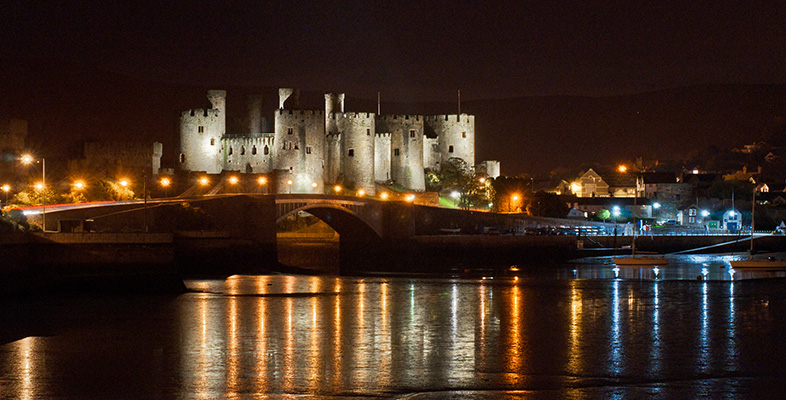9.3 Conclusion
- Contemporary film makers have tended to work explicitly against some of the older cinematic representations in Wales, typified by How Green Was My Valley.
- Welsh language cinema has played a role in representing Wales as a bilingual culture through its small successes internationally.
- Cinema has been part of a process of representing Wales and Welsh life as part of an international urban culture.
- Cinema has a kind of freedom to explore some of the more uncomfortable dimensions to contemporary society, such as the role of racism in Wales.
- Television has the power to circulate widely representations of a culture or community. It can therefore be said to have particular significance in any discussion of the representation of a small nation such as Wales.
- The ways that television portrays Wales has broadened significantly during the period since devolution.
- Welsh-language drama on S4C has been particularly noteworthy for the range of its responses to the changing face of contemporary Wales.
- The high-profile international success of key television programmes made by the BBC in Wales has probably resulted in some changes in the way that the country is seen not only by the television industry, but by the wider audience.
You have seen that the idea of representation can be especially important to a small nation such as Wales that struggles to get its voice heard in the world. For many, Wales is invisible underneath the more general idea of the UK or ‘Britain’.
The circulation of images and narratives of Wales in the arts and popular cultural forms can be a vital part of creating a sense that the devolved nation has a part to play in the world. This in turn can be part of creating a sense of national confidence that a Welsh identity has genuine significance.
This is very much in tune with contemporary thinkers who use concepts such as the ‘imagined nation’ to convey the idea that a national identity is not something fixed and needing to be continuously re-asserted but, rather, something that evolves and is shaped.
Part of this process of re-imagining is done by artists, but also by the audiences who engage with work that has elements that can contribute to a nation’s sense of itself. The process is therefore not passive, but dynamic and something in which we all participate, however unconsciously.
You have also seen that a nation’s identity and culture is frequently and most eloquently expressed through the ‘banal’, that is, the ordinary things that make up the rituals of our existence.
In the decade since devolution, there have been significant changes to the way that Wales is represented. Some of these have been the result of artists and companies re-imagining the country, sometimes inspired by the idea of a measure of political independence and what some refer to as Wales’s ‘postcolonial’ status.
Some changes have been the result of the evolution or creation of ‘national’ institutions, part of whose job it actually is to represent Wales as a separate nation with a distinct identity. These include the National Museum of Wales, the BBC and the Arts Council of Wales.
The significance of some changes to the way that Wales is seen in the wider world will however always remain open to debate. The international success of Dr Who and Torchwood is for many a watershed in the shifting identity of Wales, which will ensure that Wales is seen as a place in which contemporary forms of creativity can flourish. For others, these programmes have little to do with the lives of most people in Wales.
Similarly, the establishment of national theatres in both languages is for many an important step in broadening the ‘national conversation’ and offering opportunities for artists to remain in Wales and play a part in its construction. Others see it as Wales repeating outmoded ideas about what a ‘nation’ is by creating outdated institutions.
What can be claimed is that there is now a much greater variety to the ways that Wales is represented to a wider world. The tired national stereotypes to which Ed Thomas referred may not be quite dead, but they now must compete with the idea that Wales is a place in which there are vibrant cityscapes as well as threatened rural communities, dancers and performance artists as well as brilliant rugby players and, above all, a sense of re-imagining the nation even if the economics of 21st-century media mean that there will always be a struggle for voices to be heard.
